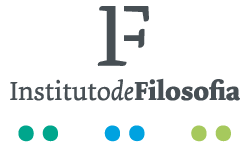Seminário sobre o filósofo Nicolau de Cusa e a cosmografia
Nicolaus Cusanus (1401-1464) as Cosmographer
From: 2017-04-27 To:2017-04-27
Thematic Line
Medieval & Early Modern Philosophy
Research Group
Reason, Politics & Society
Seminário de investigação
Thomas Horst (CIUHCT, University of Lisbon, Portugal)
Nicolaus Cusanus (1401-1464) as Cosmographer: His humanistic network, German-Portuguese relations and the Dialogus de ludo globi
FLUP, 27 de abril 2017, 15h30, Sala 203
The seminar will introduce into the cosmographical thinking of the German cardinal Nicolaus Cusanus (Nikolaus von Kues /Nicholas of Cusa, 1401–1464). As one of the first proponents of Renaissance-Humanism – with a strong interest in theology, philosophy and canon law, but also in astronomy, mapmaking and particularly in cosmography – Nicolaus was a key figure of the 15th century with a long-distance scientific network (cf. the international workshop “Universum Infinitum”, which was organized by Thomas Horst in the BNP in 2016: http://www.ciuhct.org/pt/workshop_universum_infinitum). This network is well documented by the extensive opus of the German philosopher and his personal relations to important Italian Humanists as well as to a Portuguese churchman (Fernando Martins de Roriz) during the age of the discoveries.
Of especial importance of his “Opera Omnia” is the Dialogus de ludo Globi (written in the years 1462/1463), where the Cardinal philosophically carries out the symbolic design of the world in a game of spheres: Nicolaus, who also possessed scientific instruments (two celestial globes, a torquetum, an astrolabe) and probably was the initiator of a first map of Central Europe, deliberately uses the imperfect globe as a play-sphere, portraying it philosophically as an allegory for the philosophically creative subject and likewise at the same time the self-realization in God’s image of the human.
Dr. Thomas Horst (PhD 2008) studied history and anthropology in Munich and Vienna. In 2003 and 2005 he carried out an ethnological field study in the Amazon region. His book about the cartographer Gerhard Mercator (1512–1594), which was translated into French and Dutch, has been distinguished by the “Société de Géographie” with a special award in Paris in 2012. Since September 2013 he is working as a postdoctoral fellow on a project about Maps, Globes and Texts: Cosmographical knowledge in early Modern Europe at the Centro Interuniversitário de História das Ciências e da Tecnologia (CIUHCT), University of Lisbon (cf. http://ciuhct.org/pt/thomas-horst; FCT: SFRH/BPD/85102/2012). Recently, he co-edited the book Renaissance Craftsmen and Humanistic Scholars. Circulation of Knowledge between Portugal and Germany (https://www.peterlang.com/view/product/26359), showing the results of a conference he has organized in the BNP in 2014.
His main areas of interest include the history of early modern cartography, the German-Portuguese relations, the study of globes and historical visual culture studies.
Organisation: TL Medieval and Early Modern Philosophy - Instituto de Filosofia da Universidade do Porto.
